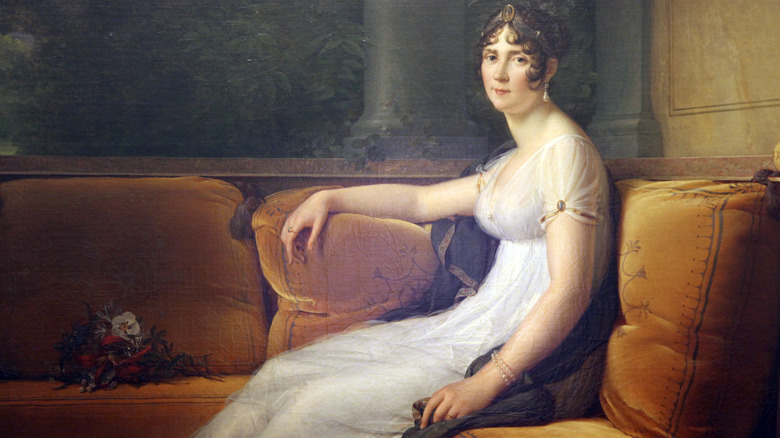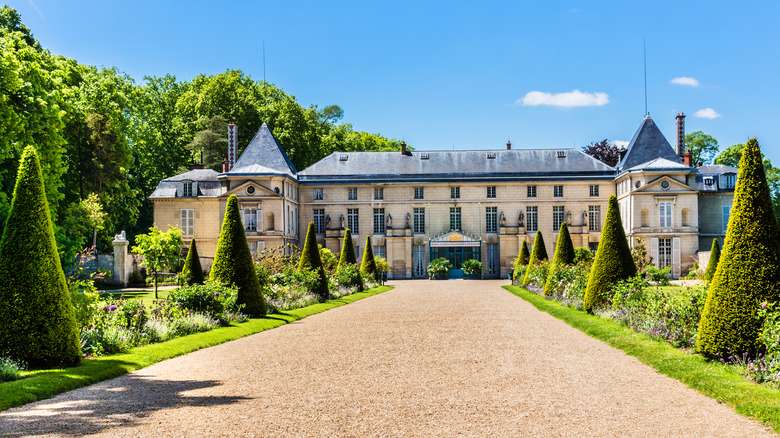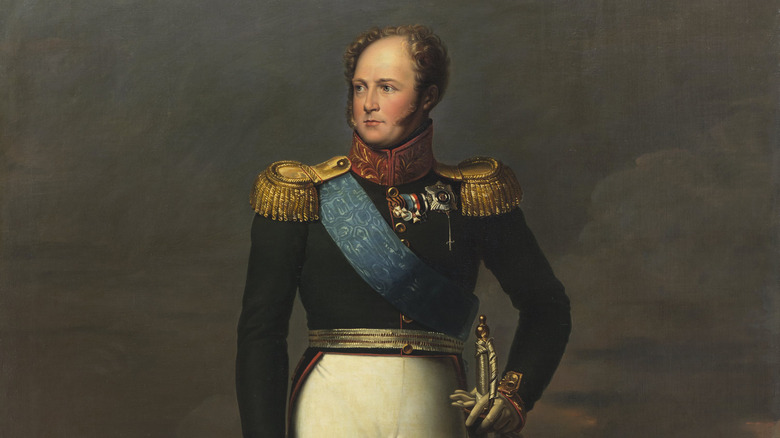How Did Empress Josephine Bonaparte Die?
Napoleon Bonaparte's wife, Empress Josephine Bonaparte, was famous for having all the grace and charm her husband lacked. Although their marriage not did last, Napoleon was extremely passionate about his beautiful ex-wife until the very end, and she appears to have grown to love him too. By the time of her death — which The New York Times said in 2014 was "probably pneumonia" — it was even rumored that the empress was assassinated for attempting to install Napoleon's son as ruler of France as part of a grand conspiracy.
Initially, the imperial couple's marriage left a lot to be desired — Josephine found Bonaparte a bit odd, and both parties had affairs during the course of their partnership. When she could not give him an heir the pair finally got a divorce, but their bond remained intact. Josephine ultimately retained the title of empress, and they continued to love each other from afar. Their association inevitably made Josephine a potentially dangerous political personality in explosive 19th-century France, even after the emperor was defeated. With Napoleon's first exile, Josephine was free to do as she pleased, but she was still immensely concerned about the fate of her ex-husband. Following her death, rumors emerged that the beguiling Josephine had found a useful political ally in her final days on earth — the tsar of Russia, Alexander I. Some even whispered that she had been murdered for her Bonapartist schemes.
When Alexander met Josephine
Napoleon Bonaparte became enamored with the tsar of Russia before Josephine Bonaparte had anything to do with him. Per Andrea Stuart's "The Rose of Martinique," Bonaparte once famously wrote to tell Josephine that Tsar Alexander I "ought to be with me. If he were a woman, think I should make him my sweetheart." In 1814, Josephine and Alexander finally met, and like her husband, they seemed to get on swimmingly (via Russia Beyond).
At this point in history, the Prussian army had just taken Paris, and Bonaparte had been exiled to the Island of Elba where he could do little damage. During the fallout period that followed, the tsar expressed a desire to meet with the ex-Mrs. Bonaparte, something she was reluctant to do until Napoleon persuaded her that it may prove advantageous. Josephine was evidently a charming host because many other European leaders started dropping in to socialize with her at her Chateau de Malmaison. For one reason or another, Tsar Alexander in particular kept coming back, and the Russian ruler gave Josephine several magnificent gifts while he was there, including a priceless diamond necklace.
Friendship, romance, or a political coup in the making? Whatever the reason for their repeated contact, the tsar's presence seemed fairly suspicious from the outside. However, if the empress and the tsar really were plotting anything even slightly political — the empress' sudden death put an end to it.
Was she murdered?
How did Josephine really die, and is there any possibility foul play was involved? On May 14, Josephine Bonaparte went for a walk with the Russian tsar and reportedly "caught a chill" ("The Rose of Martinique"). Many outlets today say she died of pneumonia — although in reality, the cause of her death is unclear. In the days that followed she developed a rash, a fever, and a swollen tongue, before finally expiring. Some doctors believe she might have contracted diphtheria or septicemia of the throat. Then of course there were rumors of murder.
According to Russia Beyond, at the time it was believed that Josephine may actually have been assassinated by French Foreign Minister Charles-Maurice de Talleyrand for colluding with Tsar Alexander I. Talleyrand was an easy person to pin conspiracy theories on at the time, having a slippery reputation as something of a snake in the grass and a betrayer of Bonaparte. There is no real evidence for the story — but the theory is nonetheless compelling. The tsar had no love for the new king of France, and it was suspected he might have preferred to have Napoleon's son, Napoleon II, on the French throne instead.


